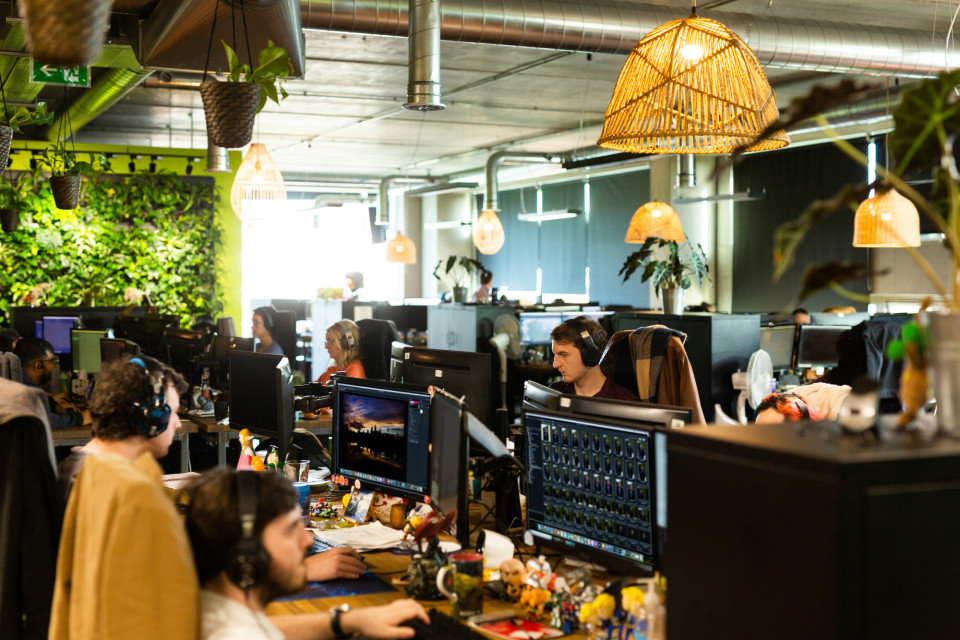UK Tech: The Roadmap to Recovery
By Bruntwood SciTech

This week signals a key milestone for the future of the UK tech sector as on Tuesday I joined my peers from digital and tech organisations from across the country to consider what our response needs to be to secure the future of this important sector for the UK economy.
Discussing topics such as smart manufacturing, spaces - how will office and co-working space change in the light of this pandemic, open innovation, the role of tech incubators, tech in health and social care and the future of tech talent, the UK Tech Cluster Group - a consortium of individuals and organisations that support clusters of tech businesses across the UK, and includes Manchester Digital, Tech East, Sheffield Digital and Bruntwood SciTech’s Innovation Birmingham Campus which I represent, gathered to debate The Recovery Roadmap and how digital will drive growth.
The debate around the future of offices and co-working was particularly pertinent as many organisations begin to consider, or in many cases, return to the workplace for the first time. The role of the compelling office space, and the importance of office experience, will now more so than ever be crucial, with a new look needed for how we value space.
Prism Digital, having surveyed 1700 tech sector professionals, noted 60% of workers will be looking for a hybrid approach to work and home, which could provide rise to an office hub and spoke model, helping towns as well as cities to recover economically if workers are spending a blend of time between both. The technology within businesses to enable this to happen will be a priority, building on the platforms and communication tools which have been a lifeline for regular communication and keeping teams together during lockdown. Different levels of in-office interaction will also be important depending on the needs of different job roles; teams need to be in the office together one or two days a week to help keep the momentum of tech innovation driving forwards and spark creativity together.
Smart manufacturing was also a key topic, holding the key to unlocking some of the wider challenges the UK is facing right now. Digital manufacturing and the need for inclusion of it from concept design right through all stages of Technology Readiness Levels to manufacturing the final product was raised, but to do so, the ecology to enable this smart process needs to be evolved; from partners, to supply chains and to customers. Smarter, more ingrained digital infrastructure is needed, and it requires collaboration throughout supply chains to weave smart digital capability into this and utilise local products and services which can themselves then scale and give back to the regional economies.
The asks here to make this possible are this: we need to create accelerator spaces for manufacturing and digital manufacturing start up companies, with all the necessary infrastructure in place to scale faster. We also need to identify regional manufacturing strengths across the UK which have global potential and link these with the right digital solutions, utilising the knowledge and collaboration opportunities within the UK Tech Cluster Group, and rather than smart manufacturing be seen as one holistic sector, recognise the needs of each sub-sector, whether that be smart manufacturing for food, automotive industry, or healthcare, to name a few. These regional strengths can then be built on, creating clusters for smart manufacturing, and for these to succeed, additional digital and technology support will be required.
It was fitting that the Summit coincided with the announcement from West Midlands Mayor Andy Street, of a £3.2bn plan to ‘Re-set, Re-Build and Recharge the West Midlands economy, investing in housing, transport and people that will create up to 135, 000 jobs. The Mayor’s package also outlined a commitment to offering digital retraining opportunities in sectors such as construction, automotive, and the creative industries, vital if our UK economy is not only going to survive but grow and enable us to compete on the global stage of digital innovation
We rounded off the Summit with a closing speech from DCMS Secretary of State Oliver Dowden, outlining his intent to bring forward a new Digital Strategy to underpin a tech-led recovery, focussing on 4 pillars:
Data - a regime that allows businesses and public services of all shapes and sizes to share vital information quickly, efficiently and ethically
Highly-skilled workforce - so that people can shift their business into the digital and tech sectors or digitise their own businesses
Infrastructure - ensuring next-generation 5G is there and available
Growing a new wave of micro-mulitnationals - supporting small businesses to make better use of tech and trade online
These are four pillars, which I and other members of the UK Tech Cluster Group, very much welcomed as we embark on our “Road to Recovery” and I look forward to being involved.